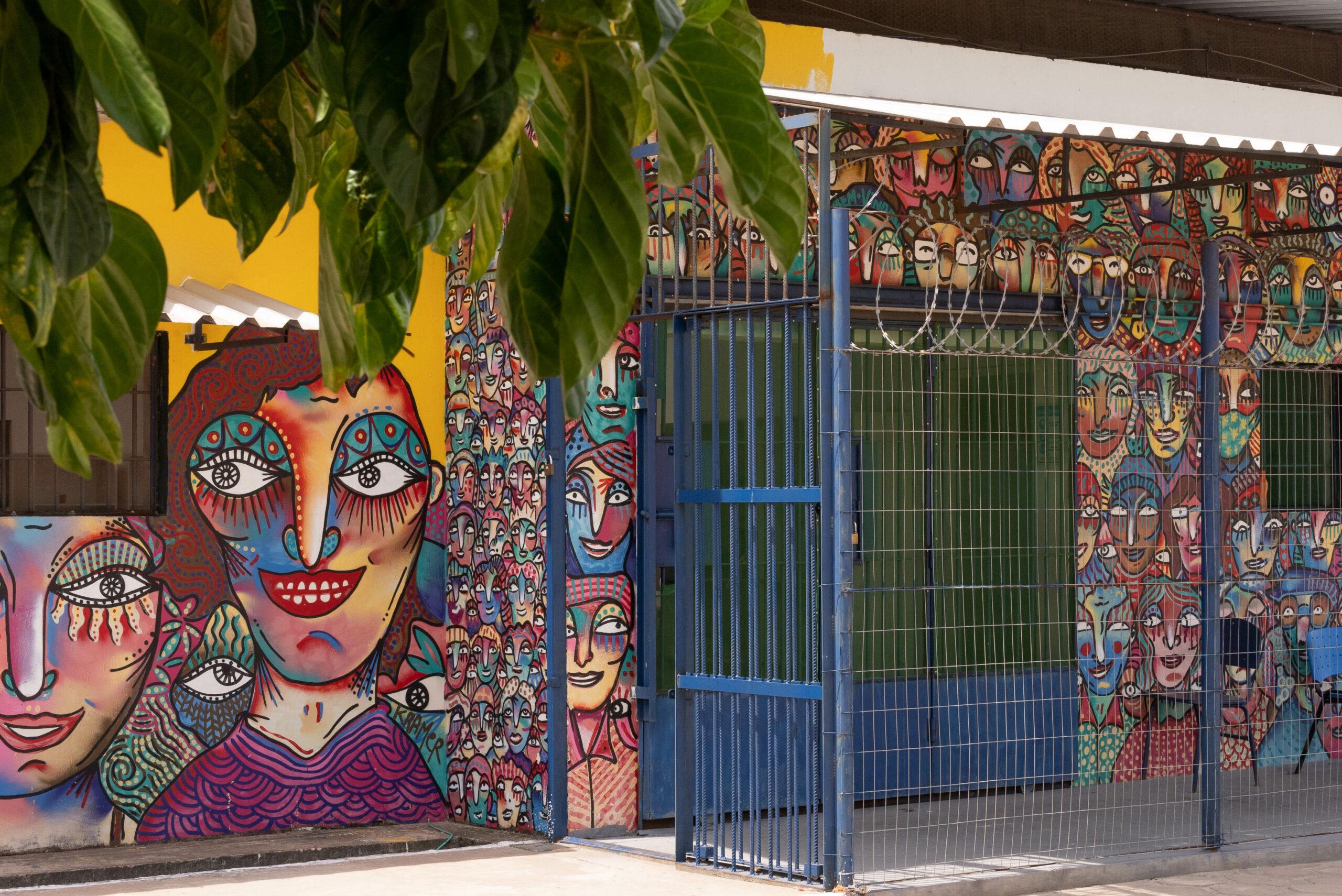On September 26, an indigenous woman from the Guajajara people who is part of the Cuxá Social Cooperative, installed by the Humanitas360 Institute in the Women’s Prison Unit in São Luís, Maranhão, won the right to provisional freedom. She was in preventive detention in the Pedrinhas Complex without having been convicted, in a process that restricted her rights as an indigenous person.
The cooperative of which she was part is the result of a partnership between H360 and the National Council of Justice, the Government of Maranhão and the State Court of Justice signed in 2019. The Institute’s cooperation agreement with the Public Power and the local Judiciary was renewed this year, including other bodies in Maranhão such as the Public Ministry, the Public Defender’s Office and the state Penitentiary Council.
It was during a visit to the cooperative that the H360 multidisciplinary team became aware of the imprisoned woman’s situation and observed that resolutions of the National Council of Justice on indigenous rights were not observed, including the carrying out of anthropological examination and the presence of interpreters specialized in languages of the region. The absence of these legal instruments was justified, in the process, by the alleged assimilation of the accused into the culture of non-indigenous people. In contact with the Guajajara woman at the cooperative, however, the Humanitas360 team found difficulties communicating in Portuguese and using conventional intimate hygiene products.
In view of the case, the Humanitas360 Institute led a collaboration involving the Public Defender’s Office, the Court of Justice and the Penitentiary Administration Secretariat of the State of Maranhão, in addition to the management of the Female Resocialization Prison Unit (UPFEM) of São Luís. The Ombudsman’s Office of the Ministry of Indigenous Peoples and the National Foundation of Indigenous Peoples were also contacted, as well as FUNAI’s representations in the state and in the capital of Maranhão. This institutional effort allowed the rights of the Guajajara woman to be observed. After being granted provisional freedom, she is now carrying out precautionary measures while awaiting trial in a village in the municipality of Amarante do Maranhão, where she returned with support from H360.
“I would like to thank everyone involved and public entities, without whom we would not have achieved such a result”, says Patrícia Villela Marino, president of the Humanitas360 Institute. For her, this collaboration demonstrates the place reserved for strategic philanthropy to change paradigms. “It was the work of an institution of organized civil society that articulated the Powers and fulfilled its function in what the Powers could not. It fulfilled its role as a negotiator, as a supporter of rights, but also understanding the limitations of Public Power in many situations,” she says.
The president of H360 also highlights gender aspects in the case. “She is an example of a person who, still in the investigation process, was convicted of a crime that she may not have committed – and of another of which she would perhaps be a victim: feminicide”, she reflects. “How many women in Brazil are accused of a crime that, if correctly observed by legal operators, would actually be victims of abuse or femicide?”
According to Higor Cauê, director of Humanitas360, this is a paradigmatic case: “Discussing the imprisonment of bodies of indigenous people requires advances and paradigm shifts in criminal and penitentiary policies. And we do not shy away from such debate. First of all, we recognize their identity, customs and culture.” According to Cauê, the Guajajara woman could not have been treated as a white person by the courts. “You can’t accept the treatment. Respect and adaptation of laws are necessary for cases like this, especially for historical reparation and protection of the fundamental rights and guarantees of indigenous peoples and tribal communities. It is to make the law work in proportion to the human dignity of each and everyone – and of our ancestors, who arrived first.”
Visiting Maranhão at the time of the indigenous woman’s release, Patrícia Villela Marino came into contact with Almir Suruí, general cacique of the Paiter Suruí people. The indigenous leader sent the following message to the Guajajara woman: “Relative, I learned about your story through my friend Patrícia Villela Marino. I want to say that I am very happy that you left where you were and are walking to your village today. I want to tell your community to reflect deeply on your history and welcome you. Because this is how we build a fair society: recognizing mistakes, evaluating mistakes and fixing mistakes.”
The Paiter Suruí people have already received the H360 team on a visit to the Sete de Setembro Indigenous Territory, between the states of Rondônia and Mato Grosso, beginning a civic friendship between the Institute and the people led by Almir Suruí. Through the PDR Philanthropic Fund, created by Patrícia Villela Marino with her son Daniel and her husband Ricardo to organize the family’s philanthropic actions, the Paiter Suruí received support in projects such as the installation of clean water plants, in partnership with the socio-environmental impact startup Água Camelo.





